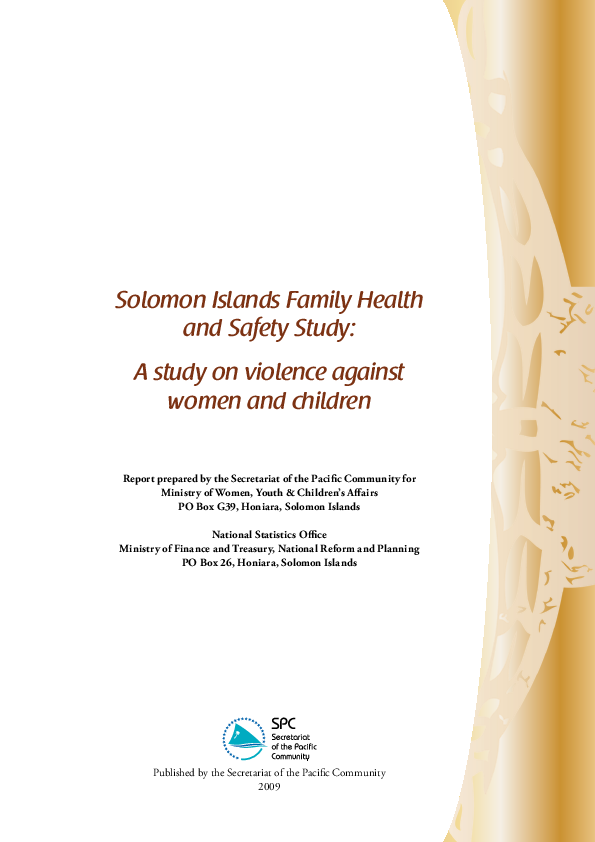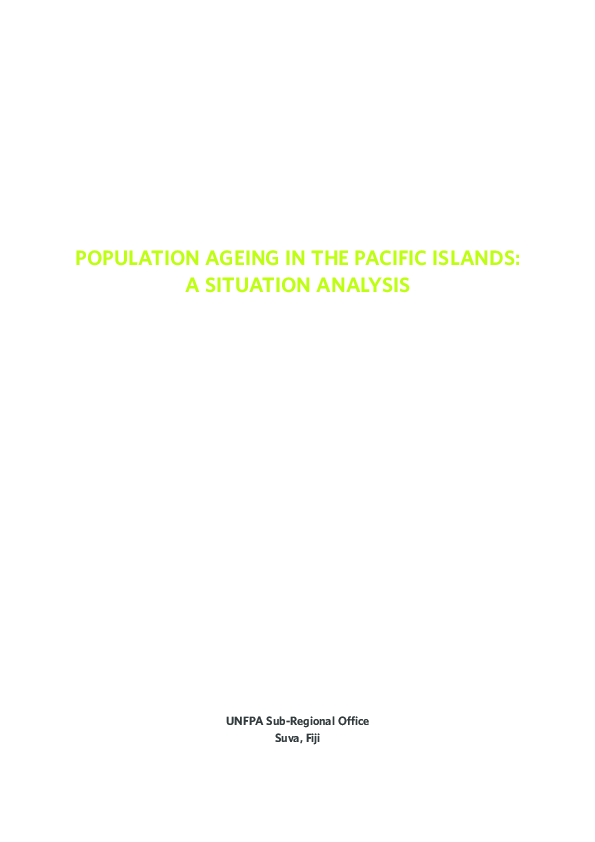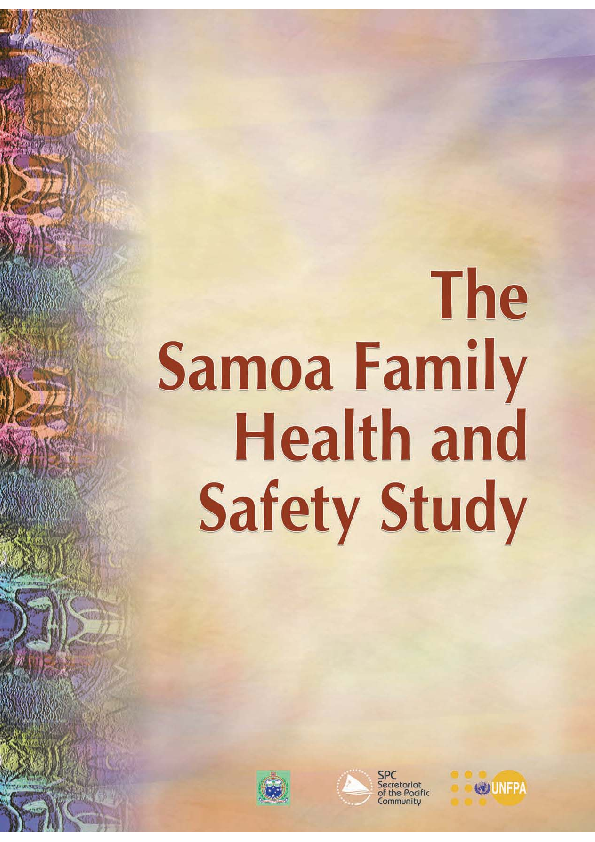You are here
New Releases

Solomon Islands Family Health and Safety Study
Publication
The evidence which we have seen from this report on the Family Health & Safety Study challenges this conception. Two out of three women aged between 15 and 49 years have been abused and the stories about children being abused are unspeakable, yet violence against women and children has often been the subject of continuous denial and suppression by society. We continue
to harbour attitudes that do not conform with what we aspire to be. Society has been slow in condemning violence against women and child abuse as crimes and this is exacerbated by the
fact that violence against women is very much inherent in gender-based inequalities practised by our society. Whoever is in control shapes the destiny of others and in this equation, the most
vulnerable are our women and our children.

Population ageing in the Pacific Islands
Publication
This report provides the first overview of population ageing in the Pacific Islands both at the sub-regional level and in individual countries. The report also reviews the implications of population ageing for social welfare of the elderly and related policy issues that Island governments will face in the coming decades. The UNFPA intends to work with the countries, other international organizations, NGOs and civil society in the future researching these issues in greater detail and assisting the countries of the region to formulate appropriate policies and programmes in a timely manner.

The Samoa Family Health & Safety Study
Publication
The Samoa Family Health and Safety Study (SFHSS) is a component of the larger Pacific Multi-site Study of the Effects of Violence Against Women on Family Health and Safety, which is a joint research initiative of the Secretariat of the Pacific Community (SPC) and the United Nations Population Fund (UNFPA).
The Multi-site study follows the methodology of the World Health Organization (WHO) Multi- country Study of Women’s Health and DomesticViolence, and uses questionnaires based on those developed by WHO. The Pacific Multi-site Study was designed to:
• provide detailed information on the prevalence and frequency of different forms of violence in families (defined to include relationships between de facto partners);
• examine risk and protective factors at the household and community level;
• document the health and legal consequences of domestic violence;
• explore strategies and interventions used by victims, families, and communities; and
• assess the impact of attitudes on the preventionand intervention of violence